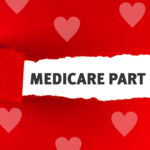
Blog


Valentine’s Day Reminder: Creditable Coverage Disclosure to CMS
New York’s Paid Prenatal Leave Law: What to Know
New Requirements for ACA Forms 1095-B and 1095-C
Your Plan Year Playbook: Winning Compliance Strategies
Court Strikes Down Fixed Indemnity Coverage Notice Requirement

- GINA
- Coronavirus
- Cafeteria Plans
- Affordable Care Act
- MEWA
- Healthcare Reform
- health care reform
- Regulations
- ACA Reporting
- Preventive Care
- fiduciary
- plans
- consolidated appropriations act
- SBC
- retirement
- Penalties
- benefits
- Medicare
- Form 5500
- OCR
- Supreme Court
- same-sex spouses
- EBSA
- CARES Act
- Pay or Play
- HRA
- mental health parity
- Group Health Plans
- Shared Responsibility
- COBRA
- FSA
- HSA
- CAA
- CMS
- HHS
- SECURE 2.0
- SECURE Act
- COVID-19
- erisa
- HIPAA
- DOL
- 401(k)
- IRS
- ACA
- Health & Welfare

The information and content contained in this blog are for general informational purposes only, and does not, and is not intended to, constitute legal advice. As always, for specific questions concerning your health or 401(k) plans, please consult your own ERISA attorney or professional advisor.
Government Issues Guidance On The Relationship Between The No Surprises Act And The Affordable Care Act
The Departments of Labor, Health and Human Services (HHS), and the Treasury (collectively, the Departments) have issued an FAQ clarifying the relationship between the balance billing provisions of the No Surprises Act and maximum out-of-pocket limitations of the Affordable Care
OCR Recommends Consideration Of Multifactor Authentication For HIPAA Security Rule Compliance
HIPAA covered entities, including employer-sponsored health plans, are required to comply with the HIPAA security rule if they handle electronic protected health information (ePHI). In practice, this will include virtually all self-insured health plans and at least some fully insured
IRS Addresses Tax Implications Of Wellness Benefits Provided Under Fixed-Indemnity Plans
The IRS has recently issued an internal memorandum confirming its position on certain wellness plan arrangements that are being marketed by promoters as being able to save employers money by reducing their liability for FICA and FUTA taxes. The memorandum
IRS Issues Guidance On Expenses For COVID-19 And Preventive Care Under High Deductible Health Plans
Background In order to make contributions to a health savings account, an individual must be covered under a high deductible health plan (HDHP) and not covered under any plan that is not an HDHP. An HDHP is not permitted to





